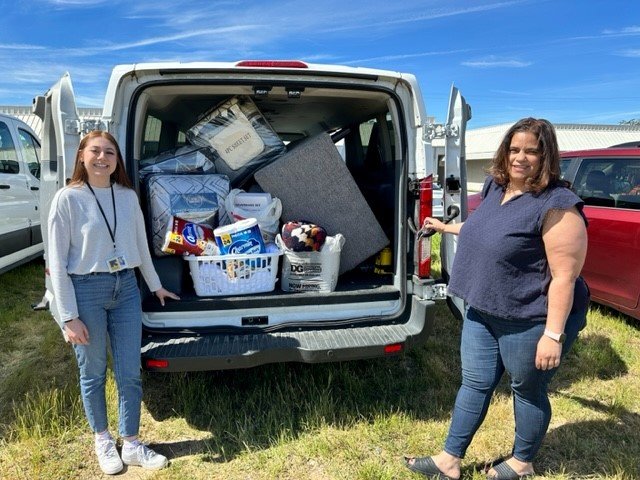Turlock is known for its agricultural industries, the founding of MedicAlert and being home to Stanislaus State, among other things. What many don’t know is that Turlock is also home to the International Rescue Committee.
The International Rescue Committee (IRC) was first founded at the request of Albert Einstein in 1933 to help people around the world affected by conflict and disaster. IRC has welcomed newcomers to Northern California since 1975, and opened its Turlock office in 2002.
In 2023, IRC welcomed 667 refugees — 341 of whom were under the age of 18 — the majority coming from Afghanistan (525), Syria (94), Iraq (18), Guatemala (18) and Iran (6).
“Since the fall of Kabul (the capital of Afghanistan) in 2021, we've seen a really, really large number of Afghans coming to Northern California, and most of the families that we've welcomed in the last year, for example, to the Turlock area have also been from Afghanistan,” said Jims Porter, communications & advocacy coordinator for IRC in Northern California.

So how does a family or an individual in Afghanistan, or anywhere else, become a refugee to the United States?
“The International Rescue Committee, and other resettlement agencies like us, are contracted with the U.S. State Department's program, which is called the U.S. refugee admissions program. So that's the program by which most refugees come to the United States, and in order to go through that program, a person has to have been driven from their home because of persecution or conflict into a second country. They're not just displaced within their country, but they've actually had to cross an international border to seek safety elsewhere, and then once they're there, agencies like the U.N.’s Agency for Refugees, will help process refugees to find out whether or not they qualify for refugee status. And if they do, that, can lead to certain solutions, including resettlement to the United States. I should clarify that most refugees, or most people who are forced from their homes, they either stay in that secondary country because that's really closer to their homeland, or if the war, the conflict, whatever made them had to leave their home in the first place, if that subsides, the real preference is to go back home. Hopefully, that will be the case for many Syrians right now,” explained Porter.

“Those who are resettled, once they get that refugee status and are offered resettlement in the United States, that really is the small majority. It's about 1% of all displaced people will ever be resettled. And so that's where here in Northern California, we come into play…from the moment their plane lands, walking alongside them, we provide furnished housing and we give individualized support, helping them learn English, start to think about how they're going to support themselves. We offer career services to help folks not only find their first job, but also develop a plan so that they can continue to become more financially stable. All of the programs, all of the services that we offer, really, our singular top goal is to help refugees and their families become self-reliant. You know, the families that we work with are resilient. They're survivors. They've already got themselves this far, and they are the ones who will propel themselves to success,” he continued.
Porter said it’s really a community-wide effort in supporting the incoming families.
“It takes schools, it takes businesses, it takes community associations, healthcare providers, mental healthcare providers, we all have to work together to help these, our newest neighbors, these families that we've welcomed to Northern California, we have to work together to make sure that they can thrive in our community,” he said.

When the Turlock Unified School District — which has placed 33 refugee students since August — heard that 10 families are expected to arrive in the area in the next several weeks, its Family Resource Center and Student Services department put out a request for donations of crock pots and tea kettles for the families who will most likely start out living in hotels until more permanent housing can be found.
“We really rely on community support like that. So much of the funding that we get through the government is very volatile, especially right now, with the incoming administration change that will definitely change the policies on refugees. We're going to see really significant cuts to funding for programs and services like ours, and so that's where community support is going to become even more important. With those funds that the community gives we're able to use those in flexible ways to make sure that the thousands of refugees we've welcomed in recent years continue to have the support they need as they as they work towards self-reliance,” said Porter.
For more information about IRC or to get involved:
• Donate Financial Support: Rescue.org/Turlock
• Collecting Donations & Kits: Rescue.org/TurlockDonations
• Partnerships & Volunteers: volunteer.turlock@rescue.org





